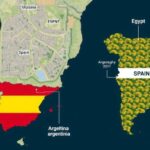An Overview of Economic Developments in Benin
Benin’s economy relies heavily on external aid, particularly from France. Attempts at restructuring and liberalization have faced challenges such as corruption and stagnant growth. Agriculture supports about 70% of the population, with significant fishing and manufacturing sectors. Key resources include oil, minerals, and tropical hardwoods, while trade is centered around agricultural exports. The Cotonou port plays a vital role in trade dynamics.
The economy of Benin has historically relied on external assistance, particularly from France and international organizations, which has somewhat alleviated widespread economic stagnation and low living standards. After a 1972 coup, the government attempted to apply socialist principles by nationalizing sectors of the economy and establishing ties with Soviet and other socialist countries. Unfortunately, despite these restructuring efforts, issues such as corruption remained persistent, and economic liberalization measures in the mid-1980s did not yield the anticipated benefits. The return to privatization during the early 1990s marked a significant shift in economic policy.
Benin is endowed with natural resources, including tropical hardwoods, rich fisheries in lagoons and rivers, and various minerals such as iron ore and limestone. The discovery and exploitation of offshore oil since 1968 have added another dimension to the country’s economic landscape. Approximately 70 percent of the population relies on agriculture, with significant emphasis placed on food self-sufficiency and the production of cash crops like cotton and cocoa. The fishing industry, particularly coastal and lagoon fishing, is also a vital part of the economy, contributing substantially to exports.
Benin’s manufacturing sector includes several industries such as palm oil processing, cement production, and cotton ginning, while electricity generation relies heavily on thermal plants and imported power. Financial privatization efforts in the late 20th century led to the emergence of private banks and increased foreign aid focused on development projects. Trade primarily revolves around agricultural exports to nations such as India and Malaysia, while manufacturing goods and other products are regularly imported from various countries.
Transport infrastructure in Benin consists of a limited network of paved roads, a railroad system, navigable rivers, and a single international airport in Cotonou, facilitating domestic and international travel. The deepwater port at Cotonou serves not only Benin but is also crucial for Niger and Nigeria, highlighting its potential for earning customs revenue.
In summary, while Benin’s economy has experienced various challenges and attempts at restructuring, agriculture remains the backbone for the majority of its population. With ongoing trade and investment opportunities, particularly in natural resources and farming, Benin continues to navigate its economic landscape amidst external reliance and internal reform efforts.
Benin, a West African nation, gained independence in 1960 and has faced numerous economic challenges since then. The dependency on external aid has been a longstanding aspect of the country’s economic framework, which has prompted various government regimes to pursue differing economic strategies, including an era of socialist policies and eventual shifts towards privatization. Both agriculture and natural resources play crucial roles in the nation’s economy, influencing trade and foreign relations significantly. Understanding this context is essential to appreciate the economic developments and ongoing challenges that Benin faces today.
In conclusion, Benin’s economic landscape is characterized by an enduring reliance on external support, with agriculture and fishing serving as significant components of the economy. Although periods of restructuring have aimed to improve efficiency and reduce dependency, challenges such as corruption and economic liberalization have hindered progress. Continued investments in infrastructure and resource management may hold the key for Benin to enhance its economic stability and growth prospects in the future.
Original Source: www.britannica.com








Post Comment